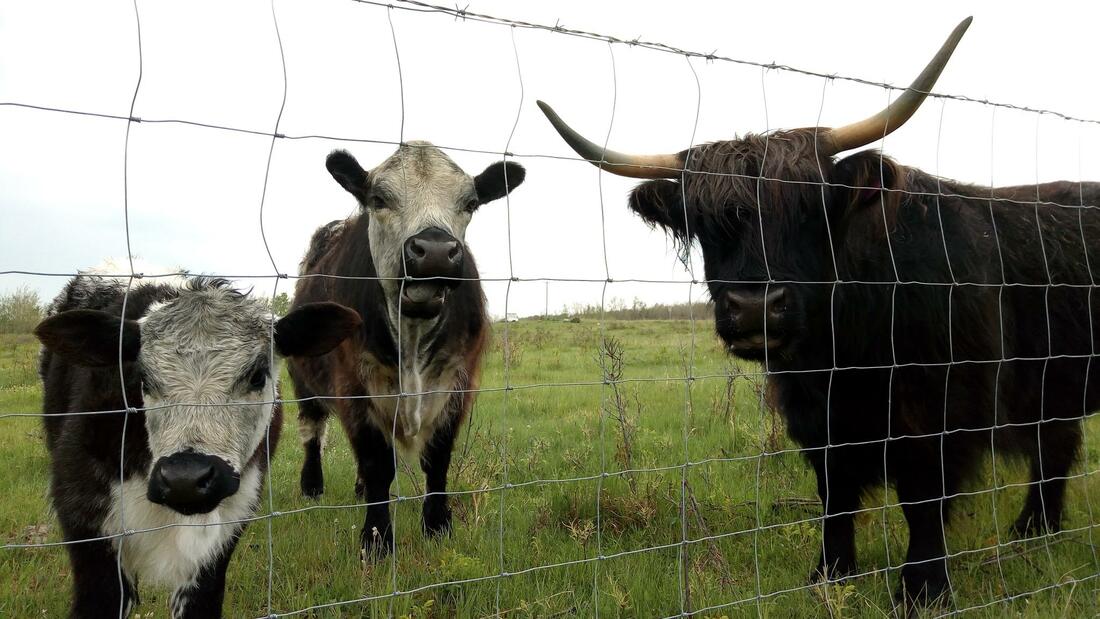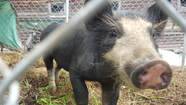The sheep have lice! Of all things, lice and I have zero idea from where they have come. Only once, many years ago, have lice been present on the farm. Then there were few animals and it was an easy fix to dust them with powder and give them a shot of ivermectin. Now, with 70 some sheep and 25 goats, that is a big job. And every sheep and goat must be done or the risk of reinfection is pretty great. How will I do Karin Llama on my own? I can pet her, but she will not stand there and let me put anything on her back or down her throat. I need to think creatively. Perhaps a bag over her head and a rope around her neck and quick action will work? How to get that done? Hmmm.
The sheep and goats are for sale. As soon as we are clear of the lice, they are, that is. Karin can stay here with 10 or 12 sheep and 6 goats. I feel that is a good number to manage by myself. The ducks and chickens are for sale as well. I do not sell enough eggs to warrant selling eggs, even at $5 a dozen. I have said this before, but folks, especially folks here, still think that eggs should be $2 a dozen, even though they charge $125 a big bale of hay. Another Hmmmm!
I have a thin goat who is showing all signs of anemia, which means barber pole worms. She has been treated many times with Ivermectin and Safeguard. At age 7, she is getting up there, however; she should still have lots of good years left. This barber pole medication resistant strain had to have come in with some sheep acquired this summer, because it was not on the farm previously, well not for many years. Many years ago, a man gave me 14 beautiful Nubian doelings and every single one died. They had been dewormed and were wormer resistant. Even at the veterinarian's the day before she(Nubian kid) died, he admitted he was at a loss as what to do. I cried so hard and still tear up. But none of the other doelings that went to two other farms died, so to this day, I am still unsure what happened. The man who left them here had them living in the back of his truck for about ten days, so perhaps it had something to do with it. So, so very sad, it was.
But back to Daphne. Finally, we have a new vet in town that has some knowledge about goats and sheep. She informed me that everything I was doing was right and if she was not responding, she had become resistant to Ivermectin and most likely 'white' wormer medicines as well. She gave me a list of things to do including 5 days of Newcells shots to build the blood, an oral drench with Flukiver, and some good minerals and salt, which they have access to always anyhow. Flukiver costs $250.00 and is available in one size only and expires in 1 year from purchase. Yikes! See why I cannot continue to farm? A bottle of Ivermectin was $40 8 years ago. Hay was $40 dollars a bale.
I spoke at length to a very nice lady who came to view my Airstream (long since sold) a couple of years ago. She read that I was retiring and wanted to know more. She is also a farmer in the area, albeit conventional, not organic and assured me that cycles are in life and in farming and although prices are crazy high now, they will come down somewhat in the future. How far in the future, one cannot know, but I cannot stay farming.
Last year the man who had rented my pasture for several years, did not show up. I called and also left messages and finally in mid June, he responded saying he was not coming. I lost 2500 dollars there too, because it was too late to rent the pasture since those who needed it, found it by then. But that is not the worst. My cows are with the boarded heifers and bull every year and I count on the bull to create calves for my girls also. Last year, the bull next door busted through the fence AGAIN, but this time some of my cows (I only have 4) went onto his side. He thought they were all bred, but Elsie was not and I am not sure about the other two and I am not sure when either. I asked to rent the bull for another month, and the farmer was not interested. It was already late August then and I could not find a local person willing to bring a bull by for a couple of months, so Elsie remained open. Shona aborted last week. The only thing I can think of, since I did not see the fetus, is that the hay was bad. So 2 of the 4 I am sure will not have calves this year. Nor will Elsie give me milk.
Isn't it starting to look bad? Egads! I do feel like throwing in the towel, selling the lot and giving up, but that is not like me.
So, I hope for at least 2 calves. I have discovered that I am not much of a fan of beef, even my own strictly grass fed in unsprayed pastures grass fed beef. Compared to lamb, it is just not that great. My kids were interested in some beef until I asked them to cover the cost of it, just the cost, which turned out to be around $4 per pound cut and wrapped. That is still cheap for organic grass fed beef, but nope. I sold some to the butcher to cover his costs. But I think I will stick to lamb and chicken. Piggy Soo is in the freezer, along with her buddy Tasha. I loved piggies and enjoyed raising them, though the taste of pork is way down on my list. Lamb, goat, goose, chicken, beef and pork are my preferences in that order. Knowing that, I won't likely raise anymore pork or beef for my consumption. It is around $75 to have a lamb butchered, cut and wrapped and it is $900 for a steer. Big difference!
So, back to the farm. During the past 8 years, I have learned so, so very much.
1. Location IS everything. Be where your market is, or be willing to bring the goods to the people.
2. Be in a like minded community. I would have loved to be in Nelson, an organic progressive Earth loving area. This is something that did not cross my mind when I moved. I know better now. They are happy to pay $5 for eggs there, because they understand the value of organic humanely loved animals. Here,...not so much.
3. Have animals that the local people know, or, once again, be prepared to take the animals to where people are interested in them. Suffolk sheep and Angus cattle are what they know here and forget educating. That saying...You can bring a horse to water, but you cannot make him drink! must have originated here.
4. While I can do everything alone, I no longer want to. If you do not have a means of built in help, do not assume you will find any. I used to pay a local man $10 an hour to work here. He was happy because he was older and finding a job for himself was near to impossible. I loved him because there was nothing he could not do or make out of what was already here. He grew up with nothing and learned to make do. I loved that. But he got older too, and unable to work, so I lost his very valuable help. Here is what I do not get. Alberta's minimum wage is $15 per hour. After taxes and deductions, the take home is around $10 and hour. Yet, locals will not consider working for $10 cash and are still in the mindset of at least $25 cash for unskilled labour. Yet another , hmmm.
5. If you do not produce food for your animals, ensure what you want is reasonably locally available. This has been a huge struggle since the onset. People produce hay here, but they spray the crap out of the land first to kill the weeds, which are hugely beneficial for stock to eat, and then they plant timothy, alfalfa and brome. Just 3 grasses, well, technically alfalfa is a legume, but still. Then they have to provide copious amounts of minerals to make up for the deficiencies in the feed, because the good stuff, the weeds and shrubs, are gone and the variety of grasses are gone. Imagine you living on 3 food stuffs only. See. I have had a tremendously difficult time finding natural pasture unsprayed hay locally, and unsprayed grain too. MS, fibromyalgia, diabetes, obesity..well you name it, is linked to leaky gut now and guess what? Glyphosate is the number one herbicide, originally registered as an antibiotic, copiously used here and those diseases are rampant. Convincing the locals there is a link is a lost cause. So, back to the original plan. Move.
6. With the poor economy, I did not have a fail safe for my 10 year plan to play farmer and then sell everything and move. It did not occur to me at the time of acquiring the farm that I would be stuck. I have to reinvent myself right where I am and that is the next project I am working on. Stay tuned.
In conclusion, in this mini novel (thanks to those who have made it this far), there are so many possibilities and now that I understand the locals better, the next move or I should say step, will be to ride out the storm and do what I love - make soap and cosmetics, sew and crochet, garden and ferment, but sell somewhere else. This, I am working on. Have a most wonderful blessed day.



 RSS Feed
RSS Feed